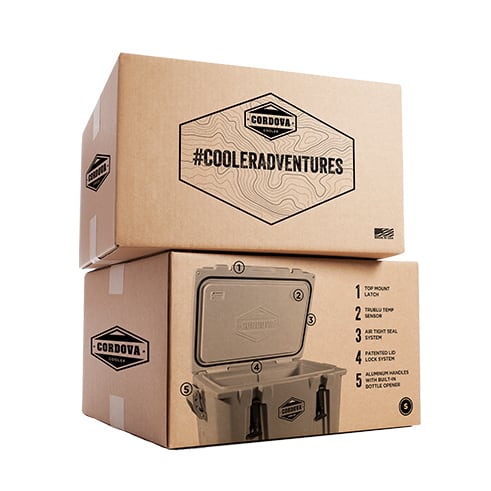Psychology Behind the Purchase: Exploring the Dynamic Landscape of Consumer Behavior
January 18, 2024
In the ever-evolving world of commerce, understanding consumer behavior has become a linchpin for success. The psychology behind a purchase extends far beyond simple transactions; it’s a complex interplay of needs, desires, perceptions, and influences.
What is Consumer Behavior?
Consumer behavior refers to the study of individuals, groups, or organizations and the processes they use to select, secure, use, and dispose of products, services, experiences, or ideas to satisfy needs and the impacts that these processes have on the consumer and society. It blends elements from psychology, sociology, social anthropology, and economics.
Why is Consumer Behavior Important?
- Business Strategy Development: Understanding consumer behavior is crucial for businesses to tailor their products, marketing strategies, and services to meet the evolving needs and preferences of their target audience.
- Enhancing Customer Experience: By understanding the motivations behind purchases, companies can enhance the overall customer experience, leading to increased satisfaction and loyalty.
- Predicting Market Trends: Analyzing consumer behavior helps in predicting future market trends and adapting to changes more efficiently.
Trends in Consumer Behavior
The Rise of Digital Influence
The digital era has revolutionized how consumers interact with brands. Social media, online reviews, and influencer endorsements significantly shape purchasing decisions.
The digital era has fundamentally transformed the landscape of consumer-brand interactions in several key ways:
- 24/7 Interaction: Consumers can interact with brands anytime and anywhere, thanks to the internet and mobile technology. This constant accessibility has led to higher expectations for customer service and engagement.
- E-commerce Growth: Online shopping has surged, providing consumers with a convenient way to browse, compare, and purchase products from the comfort of their homes.
Personalization and Customization
Today’s consumers expect products and services tailored to their specific needs and preferences. This demand for personalization has led businesses to adopt more sophisticated data analytics to understand and predict consumer behavior.
- Data-Driven Insights: Digital platforms allow brands to collect vast amounts of data on consumer preferences, behaviors, and habits. This data is used to personalize marketing efforts, product recommendations, and customer experiences.
- Targeted Advertising: The use of algorithms and cookies enables brands to target consumers with ads that are specifically tailored to their interests and past behaviors.
Sustainable and Ethical Consumption
There’s a growing trend towards sustainability and ethical consumption. Consumers are increasingly aware of the environmental and social impact of their purchases.
Experience Over Products
Consumers are valuing experiences more than material possessions. This shift has led to a rise in experiential marketing and the service industry.
- Reviews and Ratings: Online reviews and ratings have given consumers a powerful voice. A single review can significantly influence the reputation and perceived value of a brand or product.
- Social Media Influence: Platforms like Instagram, Twitter, and Facebook have become crucial for brand promotion. They empower consumers to share their experiences, engage directly with brands, and become influencers in their own right.
Shift in Marketing Strategies
- Content Marketing: The focus has shifted from traditional advertising to content marketing, where brands create and share valuable content to attract and retain a clearly defined audience.
- Influencer Partnerships: Collaborating with social media influencers has become a key strategy for brands to reach larger and more engaged audiences.
Rapid Response and Adaptation
- Real-Time Feedback: Digital platforms provide immediate feedback from consumers, allowing brands to quickly adapt their strategies, products, and services.
- Crisis Management: Social media has become a vital tool for brands to manage crises by allowing them to respond quickly and directly to consumer concerns and feedback.
Experiential and Interactive Marketing
- Virtual and Augmented Reality: Brands are using technologies like VR and AR to create immersive and interactive experiences for consumers.
- Live Events and Streaming: Digital tools enable brands to host live events, product launches, and interactive sessions, fostering a sense of community and engagement.
Increased Competition and Global Reach
- Global Marketplace: The digital era has opened up markets around the world, allowing brands to reach a global audience but also increasing competition.
- Niche Marketing: Digital platforms enable brands, even small or niche ones, to find and directly engage with their specific target audiences.
Changing Consumer Expectations
- Demand for Transparency: Digital access has led to consumers demanding greater transparency from brands in terms of product sourcing, corporate practices, and sustainability efforts.
- Expectation of Instant Gratification: The digital era has fostered a culture of instant gratification, where consumers expect quick services, fast shipping, and immediate responses to inquiries.
The digital era has not only altered the ways consumers interact with brands but also raised their expectations regarding convenience, personalization, and engagement. Brands that successfully navigate this digital landscape are those that leverage technology to foster meaningful connections, deliver value, and respond swiftly to the evolving needs of their consumers.
Examples of Consumer Behavior
Example 1: The Apple Phenomenon
Apple Inc. is a prime example of effective consumer behavior understanding. Apple’s product launches create a buzz, making consumers feel they are not just buying a product but an experience. Their focus on design, functionality, and the ‘cool factor’ keeps consumers coming back.
Example 2: The Green Movement
Brands like Patagonia and Lush have tapped into the trend of ethical consumption. By focusing on sustainability and ethical practices, these brands have cultivated a loyal customer base that values environmental stewardship.
Example 3: The Subscription Model
The rise of subscription services like Netflix and Spotify underscores a shift in consumer behavior towards valuing continuous experiences over one-time purchases. These models provide convenience, variety, and personalized experiences.
Psychological Factors Influencing Consumer Behavior
-
- Perception: This plays a critical role in influencing consumer behavior. How a consumer perceives a brand or product can significantly impact their purchasing decision.
- Motivation: It’s what compels consumers to buy. This can range from basic needs like food and shelter to more complex desires like status and belonging.
- Memory: Consumer behavior is influenced by past experiences, learning, and memory. Brands that create positive experiences and memories tend to have more loyal customers.
- Attitudes and Beliefs: A consumer’s attitudes and beliefs, shaped by cultural and societal factors, greatly influence their purchasing decisions.
The Role of Emotions in Consumer Behavior
Emotions play a pivotal role in decision-making. Consumers often make purchases based on how they feel about a brand or product. Emotional marketing strategies that evoke feelings of joy, nostalgia, or even fear can be very effective.
The Impact of Social Factors
Social factors such as family, friends, and social media influence consumer behavior. Word-of-mouth recommendations and social proof are powerful motivators in the purchasing process.
The Shift Towards Online Shopping
The trend towards online shopping has been accelerated by the global pandemic. The convenience, variety, and the ability to compare prices easily have made online shopping a preferred choice for many consumers.
The Importance of Understanding Your Consumers
Understanding the psychology behind the purchase is more than just a marketing tactic; it’s a window into the soul of the consumer. In an age where consumer preferences are rapidly evolving, staying attuned to these psychological underpinnings is essential for any business aiming to remain relevant and competitive.
As we continue to witness shifts in consumer behavior, the ability to adapt and understand these changes will be the key to success in the dynamic landscape of consumerism.




























